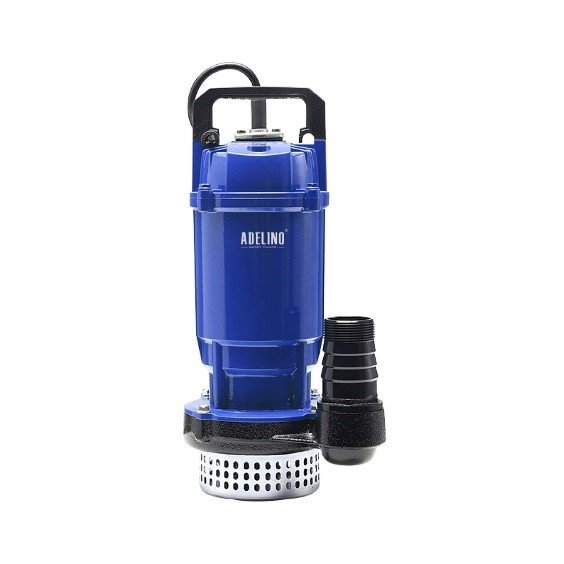How Much Does A Water Softening System Cost
How Much Does a Water Softening System Cost?
In many households, hard water is a common problem that can lead to various issues, from scale buildup in plumbing fixtures to diminished efficiency in appliances and an unsatisfactory lather when using soaps and detergents. To combat these drawbacks, many homeowners turn to water softening systems. But just how much does a water softening system cost? In this article, we’ll explore the various factors that influence the cost of water softening systems, the different types available, and what homeowners can expect regarding installation and maintenance expenses.
Understanding Hard Water
Before diving into the costs associated with water softening systems, it’s essential to understand what hard water is. Hard water contains high levels of minerals, primarily calcium and magnesium, which can lead to several issues:
-
- Scaling: Hard water can cause calcium deposits to build up in pipes, appliances, and fixtures, leading to costly repairs.
-
- Inefficiency: Hard water can make it difficult for soaps and detergents to dissolve, leading to increased consumption of these products.
-
- Skin and Hair Issues: It can leave skin dry and irritate sensitive scalps, making hair feel brittle.
-
- Spotting and Stains: Hard water can leave spots on dishes, glassware, and shower doors, resulting in a dull appearance.
For many homeowners, a water softening system becomes a solution to these problems, making their lives more convenient and less expensive in the long term.
Types of Water Softening Systems
Before evaluating the costs, it’s critical to become familiar with the different types of water softening systems available on the market:
1. Ion-Exchange Water Softeners
The most common type of water softening system is the ion-exchange system. This system uses a resin bed that exchanges calcium and magnesium ions for sodium or potassium ions when water passes through. Here’s a quick overview of their costs:
-
- Initial Costs: $400 – $2,500
-
- Installation Costs: $200 – $1,000
-
- Estimated Lifespan: 10-15 years
2. Salt-Free Water Softeners
Salt-free systems do not remove minerals but instead condition the water to prevent mineral buildup. They can be a good option for those looking for a maintenance-free system, but they may not be as effective as ion-exchange systems for treating very hard water.
-
- Initial Costs: $600 – $2,500
-
- Installation Costs: $200 – $1,000
-
- Estimated Lifespan: 5-10 years
3. Reverse Osmosis Systems
Although not strictly a water softening system, reverse osmosis (RO) systems can effectively remove minerals, including calcium and magnesium, from water. These systems are more commonly used for drinking water purification.
-
- Initial Costs: $200 – $1,000 (for the unit)
-
- Installation Costs: $150 – $500
-
- Estimated Lifespan: 10-15 years
4. Magnetic Water Conditioners
These systems claim to alter the properties of water molecules using magnetic or electromagnetic fields without removing minerals. However, their efficacy is disputed, and they may not be a practical solution for severe hard water issues.
-
- Initial Costs: $100 – $500
-
- Installation Costs: Both DIY installation and professional options are available.
-
- Estimated Lifespan: Varies greatly; often seen as a long-term maintenance option.
5. Dual-Tank Water Softeners
These systems are designed to ensure a continuous supply of softened water, utilizing two tanks that alternate between softening cycles. They are typically employed in larger households with higher water demands.
-
- Initial Costs: $2,000 – $4,000
-
- Installation Costs: $500 – $1,500
-
- Estimated Lifespan: 10-15 years
Factors Influencing the Cost of Water Softening Systems
Several key factors influence the overall cost of a water softening system:
1. Water Hardness Levels
The level of hardness in your water will significantly impact the type of softener required. Water testing services can determine the hardness level (measured in grains per gallon). The higher the hardness level, the more robust and expensive the system needed.
2. Water Usage
Household size and water usage patterns play a significant role in determining the capacity of the water softening unit. Larger families or homes with significant water use may require larger, more expensive systems designed to handle increased demand.
3. System Type
As previously discussed, the type of water softening system directly influences the initial and installation costs. Ion-exchange systems are typically the most expensive, while simpler magnetic conditioners can be cost-effective.
4. Brand and Quality
Renowned brands tend to charge a premium for their systems due to a commitment to quality and customer service. Investing in a reputable brand may offer better warranties and customer support.
5. Installation Charges
Installation costs can vary widely based on the complexity of the installation, local labor rates, and whether the installation is done professionally or as a DIY project.
6. Local Water Conditions
Different municipalities have varying regulations and water treatment needs. For instance, areas with excessively hard water might have additional service fees for maintenance or repairs.
7. Maintenance and Supplies
Water softeners require regular maintenance and salt refills (if applicable). Understanding the ongoing costs of salt or potassium chloride for ion-exchange systems can help you budget for long-term ownership.
Average Cost Breakdown
Taking all these factors into account, here’s a generalized breakdown of what a homeowner might expect to pay when purchasing and installing a water softening system:
Initial Purchase Costs
-
- Entry-Level Systems: $400 – $1,000
-
- Mid-Range Systems: $1,000 – $2,000
-
- High-End Systems: $2,000 – $4,000
Installation Costs
-
- Simple Installation: $150 – $500 (DIY)
-
- Professional Installation: $200 – $1,500
Maintenance Costs
-
- Salt Refills: $5 – $15 per month, depending on usage
-
- Resin Replacement: $100 – $300 every 5-10 years
-
- Regular Maintenance Service: $100 – $300 per year
Total Estimated Costs Over 10 Years
-
- Entry-Level Systems: $2,000 – $3,000
-
- Mid-Range Systems: $3,000 – $5,000
-
- High-End Systems: $5,000 – $10,000
The ROI of a Water Softening System
While the upfront costs of water softening systems can be daunting, it’s important to consider the return on investment (ROI). Water softeners can save homeowners money in several ways:
-
- Reduced Appliance Repair Costs: Softened water can prolong the life of major appliances like dishwashers and water heaters that struggle with scaling issues, leading to reduced repair and replacement costs.
- Reduced Appliance Repair Costs: Softened water can prolong the life of major appliances like dishwashers and water heaters that struggle with scaling issues, leading to reduced repair and replacement costs.
-
- Lower Water Heating Bills: Appliances that deal with hard water often require more energy to heat since the scale buildup reduces efficiency. Softened water can help minimize this energy expenditure.
- Lower Water Heating Bills: Appliances that deal with hard water often require more energy to heat since the scale buildup reduces efficiency. Softened water can help minimize this energy expenditure.
-
- Fewer Cleaning Products: Households with softened water generally use less detergent and soap, leading to occasional savings on household products.
- Fewer Cleaning Products: Households with softened water generally use less detergent and soap, leading to occasional savings on household products.
-
- Enhanced Lifespan of Plumbing Fixtures: Water softeners can prevent scale buildup in pipes, promoting better flow rates and reducing plumbing issues.
Financing Options
Several options are available for homeowners who find the upfront costs of a water softening system to be a financial challenge:
-
- In-House Financing: Some companies offer financing plans that allow homeowners to spread the cost of the system over several months or years.
- In-House Financing: Some companies offer financing plans that allow homeowners to spread the cost of the system over several months or years.
-
- Personal Loans: Homeowners can seek personal loans from banks or credit unions to cover installation costs and make affordable monthly payments.
- Personal Loans: Homeowners can seek personal loans from banks or credit unions to cover installation costs and make affordable monthly payments.
-
- Home Improvement Programs: Various government and private programs are often available for home improvements that promote energy efficiency and sustainability.
- Home Improvement Programs: Various government and private programs are often available for home improvements that promote energy efficiency and sustainability.
-
- Rent-to-Own Options: Some companies allow customers to rent equipment with an option to buy at the end of a defined term.
Conclusion
Investing in a water softening system could prove to be one of the most beneficial decisions for homeowners who struggle with hard water issues. While the costs associated with these systems can vary greatly based on the factors discussed, the potential savings in appliance repair, cleaning products, and plumbing maintenance often provide a solid return on investment over time. Whether opting for an entry-level system, a mid-range unit, or a high-end solution, understanding the total costs involved and the overall benefits can help homeowners make an informed choice that improves their quality of life and preserves their property value for years to come.
Overall, the operation of a water softener is a long-term commitment that warrants careful consideration and budgeting. Understanding how much a water softening system costs can empower homeowners to take the necessary steps toward achieving better water quality in their homes.


